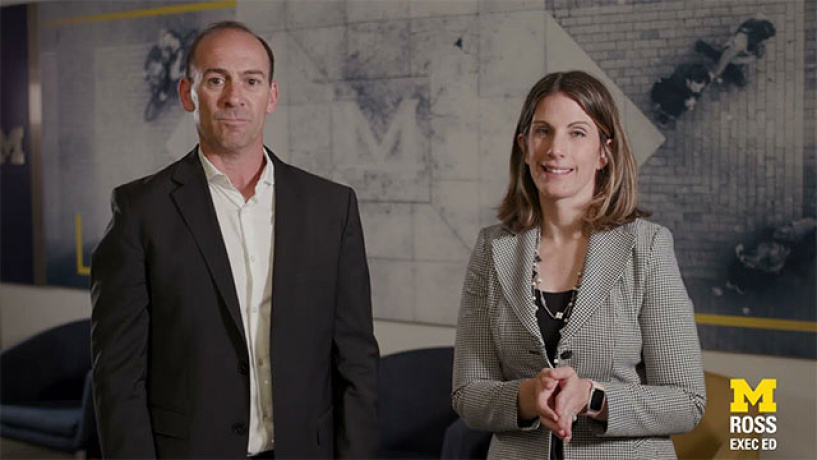Developing Emotion Regulation Skills for More Effective Leadership - Q&A With Professor Ethan Kross

Discussions surrounding emotions and well-being in the workplace have become more commonplace over the last few years in response to the extensive and ongoing presence of emotional fallout from the pandemic, social unrest, economic uncertainty, and climate disasters, among other disruptions.
These trends present themselves as a direct conflict with ingrained cultural norms and traditional principles that maintain the idea that there is no place for emotions and emotional expression in professionalism. Still, field experts and various studies today attest that emotions play a critical role in team and organizational success and could have long-term consequences if not managed appropriately. As a result, leaders must recognize that they can no longer suppress or avoid emotions at work, both within themselves and their team members, and instead should develop emotion regulation skills.
Emotion regulation refers to the ability to recognize and exert control over the intensity of and the reaction to varying negative emotions. While there are a handful of best practices team leaders can follow to support and navigate team member emotions, at the same time, leaders must develop their own emotion regulation skills before they can manage their team effectively.
Michigan Ross Executive Education recently sat down with Ethan Kross, Executive Education faculty and Ross Professor of Management and Organizations, to discuss why managing one’s emotions is critical for effective leadership, emotion regulation myths, and more.
Why is it important for leaders to develop emotion regulation skills to be more effective leaders for their teams?
Being successful at work and in life involves mastering two inextricably linked capacities: the ability to lead yourself and manage your professional relationships. Central to both of these capacities is being effective at regulating your emotions.
What are some of the most difficult emotions to regulate, and what are the potential broader consequences of not doing so when leading a team?
We know that people struggle quite a bit with regulating anxiety, sadness and anger – “the big three” – but different people have different triggers.
In terms of the implications of poor emotion regulation on teams, the list is long: burnout, impaired decision-making, impoverished performance, absenteeism, anxiety and depression, loneliness, lack of support and trust, and reduced camaraderie, to name just a few.
How do self-talk and what you have described as ‘chatter’ play a role in regulating emotions?
Self-talk can be a remarkably useful tool for helping us regulate emotions effectively. But it can easily transform into a negative thoughts spiral – we worry, ruminate, and catastrophize – which is what I call chatter. I think chatter is one of the great challenges we face as a species. It makes it hard for us to think and perform optimally, creates friction in our social relationships and damages our physical health.
What are some emotion regulation tools team leaders should be using?
There are countless emotion regulation tools that scientists have discovered. In my book, I talk about close to 30! I like to break these tools down into three buckets: tools you can use on your own, tools that leverage your relationships with other people, and tools you can find in the physical world around you. We know that different tools work for different people in different situations. So the first step is to familiarize yourself with these tools and then start experimenting to learn about which ones work best for you.
What are some myths about emotion regulation?
A few common ones are that you should always live in the moment, that venting is useful, that emotion regulation is difficult and that avoidance is always harmful.
As the founder of the Emotion and Self-Control Lab at the University of Michigan, can you talk a bit about your work there and how you’ve applied it to your curriculum here at the Ross School of Business?
My lab explores how people can control their emotions to improve our understanding of how self-control works and to discover ways of enhancing self-control in daily life. These issues are fundamental and directly relevant to the workplace. At Ross, I teach students about the principles of emotion regulation so they can leverage these ideas to be both more effective in their jobs and happier and healthier in their lives.
To learn more about developing emotion regulation skills for more effective team leadership, join Professor Kross and other faculty experts for the Leading Future-Ready Teams program









